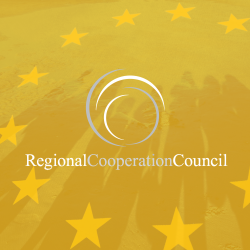Project description
The Regional Cooperation Council (RCC) is an all-inclusive, regionally owned and led cooperation framework. It promotes and advances the European and Euro-Atlantic integration of the South East Europe.
The project included an external evaluation of Quality Assurance Systems against European Standards and Guidelines for Quality Assurance in the European Higher Education Area (ESG) in the Western Balkans & Developing Regional (Western Balkans) Quality Assurance Action Plans.
KIC role
We supported the RCC with
- a full mock review of internal procedures, processes and structures of the QA systems in 6 Western Balkan economies
- an ‘ENQA style’ review report of the QA agencies in each economy that outlines the main weaknesses in relation to the different ESG standards with concrete recommendations for improvement that are needed to be in compliance with the ESG
- a report for the Western Balkans outlining general trends, strengths and weaknesses based on the 6 individual QA system reviews. The report includes recommendations that are relevant for all the different QA systems as well as suggestions for regional wide cooperation and joint strengthening of the QA systems in the Western Balkans in accordance with the ESG
We also developed
- an overarching Western Balkans Regional Action Plan
- individual-specific Action Plans for each of the six Western Balkan Economies (Albania, Bosnia and Herzegovina, Kosovo, Montenegro, North Macedonia, and Serbia)
These plans were based on previous mock external reviews of Quality Assurance agencies against European Standards and Guidelines (ESG). Their aim was to operationalise recommendations into concrete actions, timelines, milestones, indicators of success, and potential challenges.

